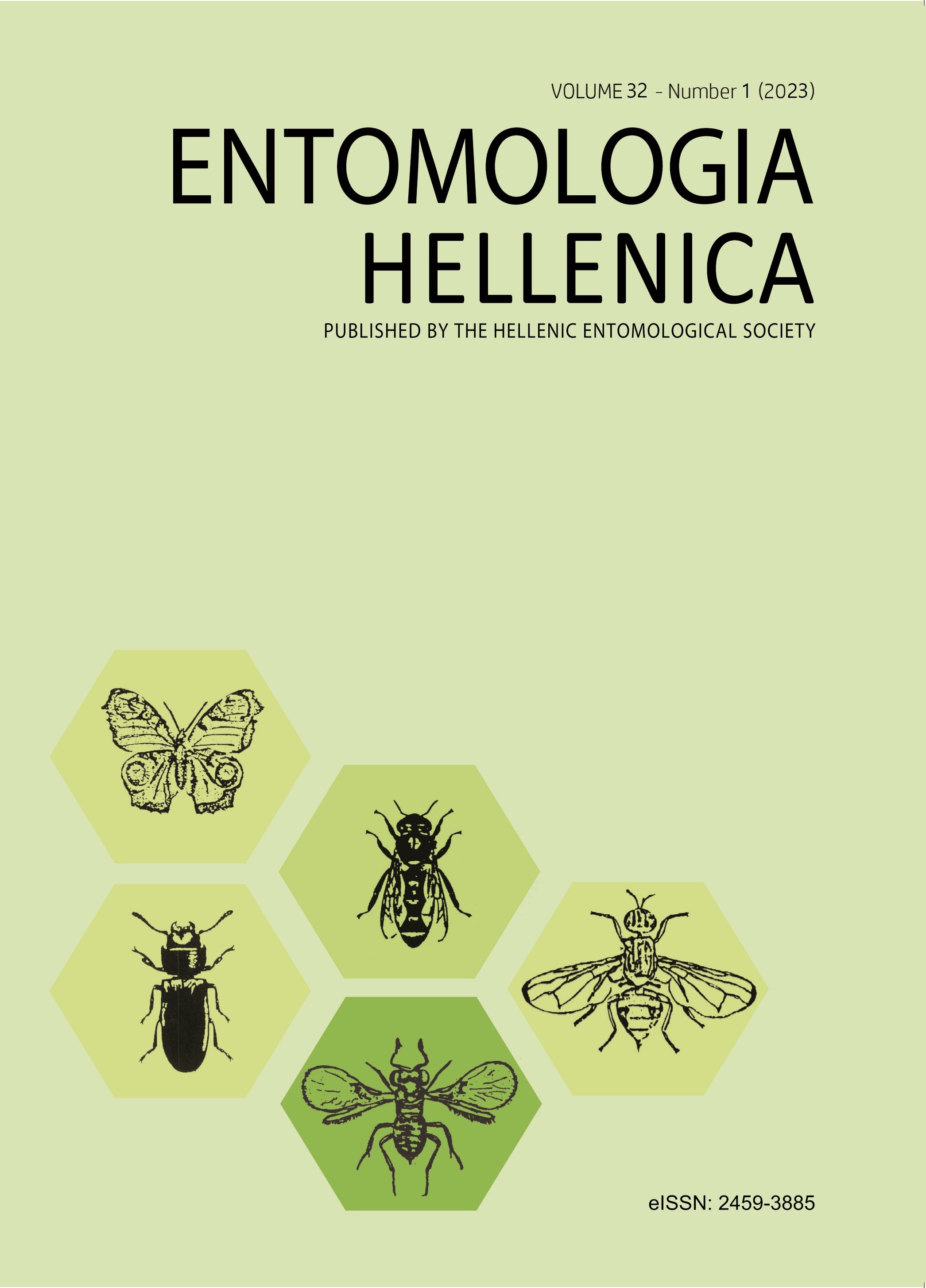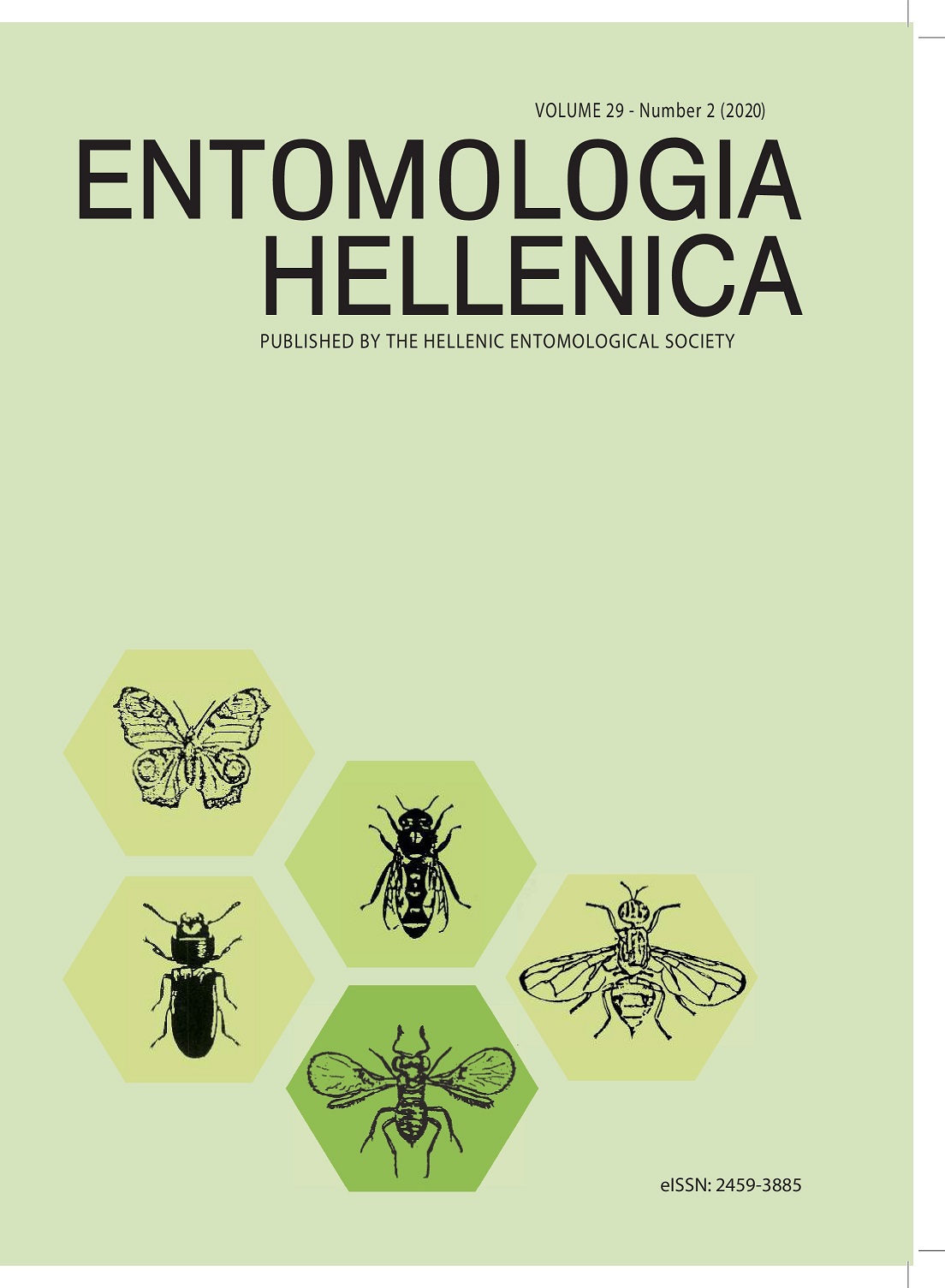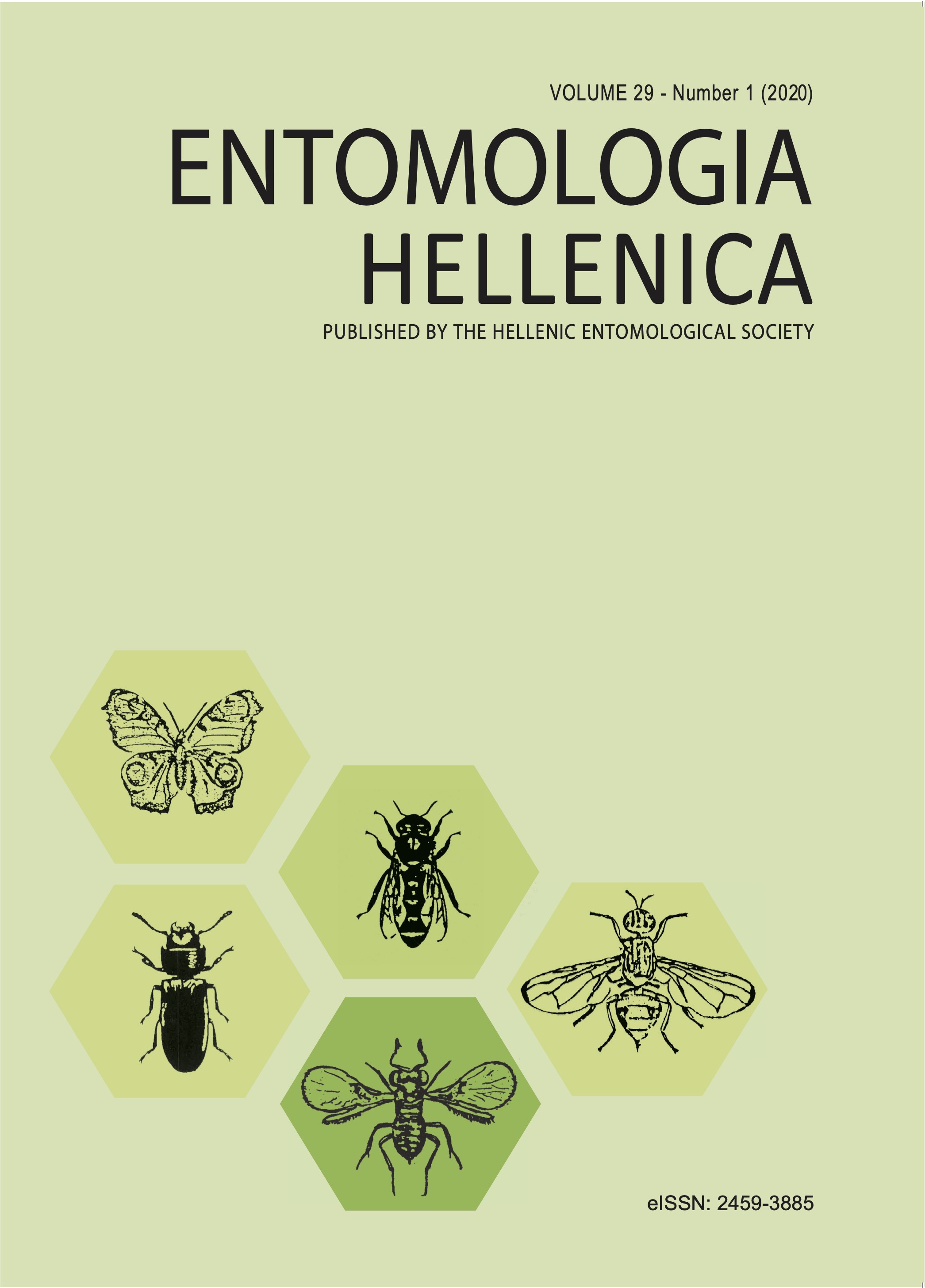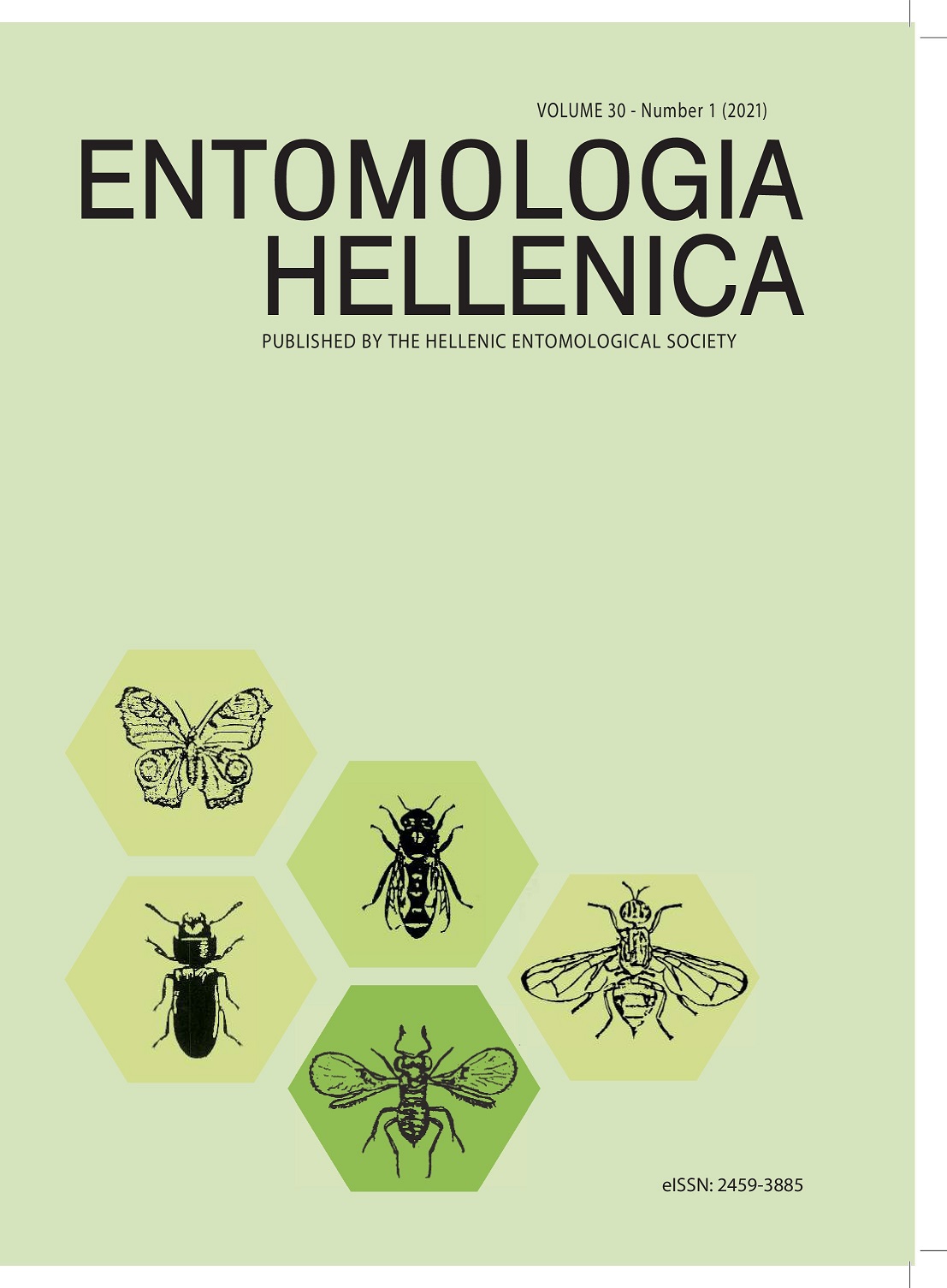Knowing no limits: First record of Ozognathus cornutus (Coleoptera: Ptinidae: Anobiinae) in Greece, including new host-plant records

Abstract
Ozognathus cornutus (LeConte, 1859), a species native to the Nearctic zoogeographical realm, has gradually spread throughout Europe and the Mediterranean region becoming alien. The species has been associated with at least 41 host-plant species and has been detected in both man-made and natural habitats. Nevertheless, no phytosanitary measures have been applied or adverse impacts on native biodiversity recorded. In this publication, O. cornutus is recorded in Greece from Rhodes Island, constituting the first record of this alien species to the country. In addition, examination of material from Cyprus and Greece unveils four new host-plants for the species, Asphodelus ramosus, Schinus terebinthifolia, Schinus molle and Vachellia farnessiana.
Article Details
- How to Cite
-
Koutsoukos, E., & Demetriou, J. (2023). Knowing no limits: First record of Ozognathus cornutus (Coleoptera: Ptinidae: Anobiinae) in Greece, including new host-plant records. ENTOMOLOGIA HELLENICA, 32(1), 1–6. https://doi.org/10.12681/eh.31415
- Section
- Articles

This work is licensed under a Creative Commons Attribution-NonCommercial-ShareAlike 4.0 International License.
Authors who publish with this journal agree to the following terms:
Authors retain copyright and grant the journal right of first publication with the work simultaneously licensed under a Creative Commons 4.0 license.
Authors are able to enter into separate, additional contractual arrangements for the non-exclusive distribution of the journal's published version of the work (e.g. post it to an institutional repository or publish it in a book), with an acknowledgement of its initial publication in this journal. Authors are permitted and encouraged to post their work online (preferably in institutional repositories or on their website) prior to and during the submission process, as it can lead to productive exchanges, as well as earlier and greater citation of published work.






